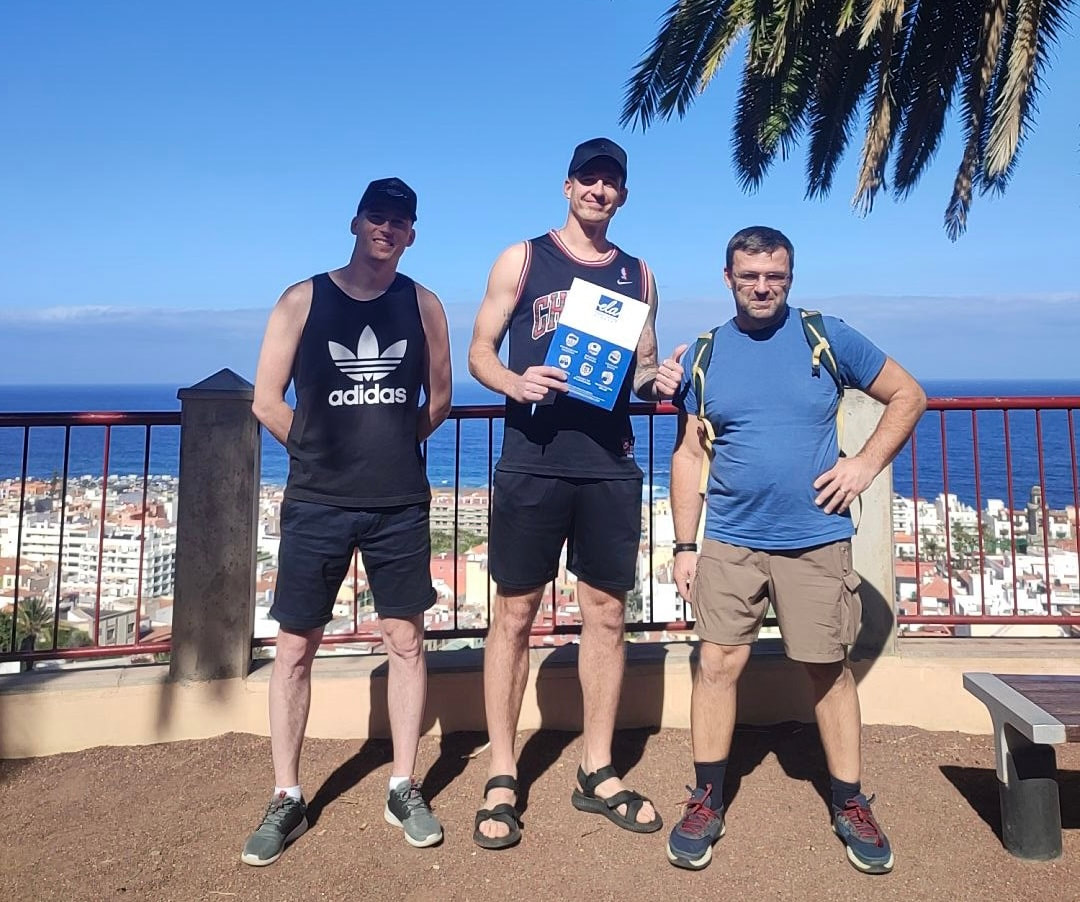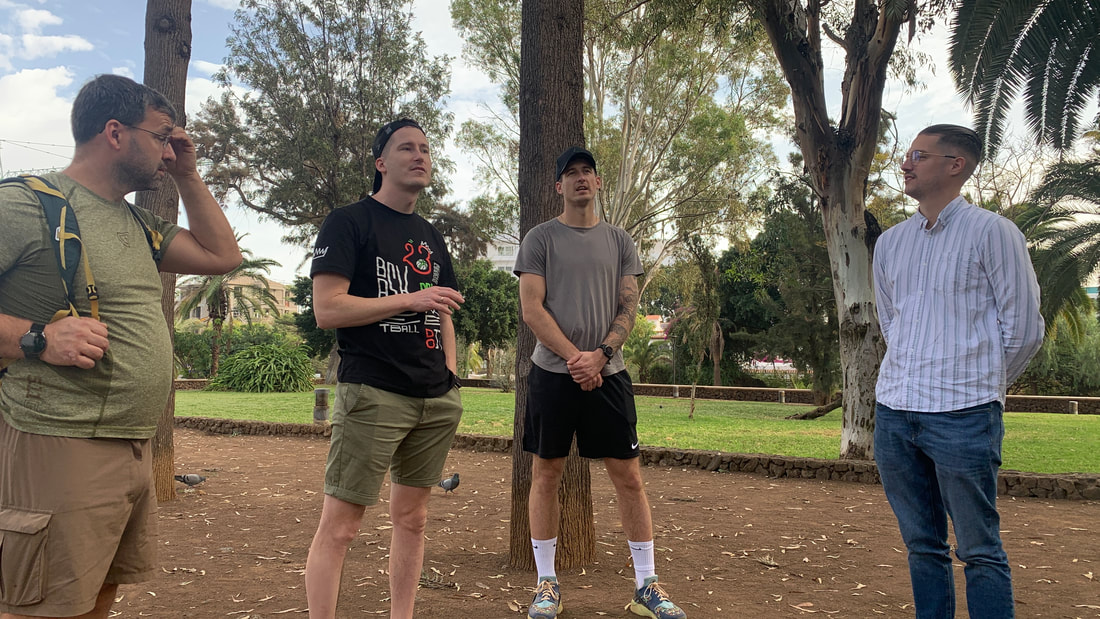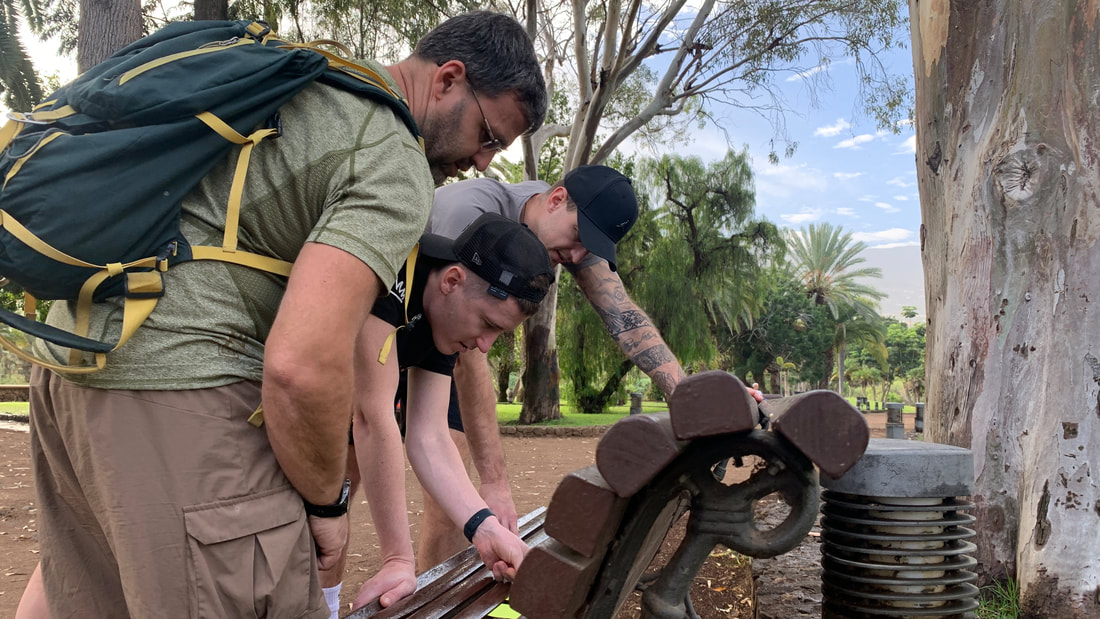|
Engaging with the outdoor has a significant positive influence on human cognitive, behavioural and emotional growth since ancient times: even today it is common to feel awed or impacted by spending time in nature or observing natural as well as urban sceneries. Outdoor education represents a pioneering educational method that tackles two critical issues in modern society: firstly delivering enduring top-notch education and secondly fostering an understanding of the urgent need to conserve our planet amidst the looming challenge of climate change. The latest edition of the course titled "Outdoor education: a new way of teaching and learning" was held in Tenerife from 21/01/2024 to 27/01/2024: participants hailed from different European countries, with Kristers and Mārtiņš from Babite Secondary school, Maciej from Zespol Szkolno Przedszkolny in Zagórze. Commencing with the definition of Outdoor education, we investigated the various methods available for facilitating student interaction with the outdoor, which does not necessarily mean always being in natural settings, such as forests: notably, a part of the training was devoted to Urban outdoor education within the city. At the beginning participants gained proficiency in teaching subjects such as science, mathematics, music, art, language and others by experimenting with activities designed to direct their focus towards their immediate surroundings. Another part of the course emphasised the utilisation of a large number of tools in natural environment within local parks: as a matter of fact the games and activities that were tested garnered high appreciation and served as a source of inspiration for participants in sharing their activities with the rest of the group as well as in devising their own outdoor activities. Participants also delved into the principles of Non-formal education (NFE), namely a pedagogical approach that places various concrete outdoor activities, which were encountered while engaging in activities or tasks, at the heart of the learning process. Consequently, by guiding students through the complete cycle and ensuring we pose the appropriate reflective questions, they have the opportunity to relate the new knowledge they acquire to their lives and effectively apply it. The final part of the course was dedicated to customising an outdoor experience tailored to the target group of each participant: so they culminated their learning journey by crafting an outdoor lesson on the subject taught following an exploration of the principles of outdoor learning, an understanding of the significance of 10 Kurt Hahn rules and engagement with urban and natural activities. Towards the end of the week, considering the age level of their students as well as the skills and topics they wished to address, each educator meticulously planned the session, then they presented their plan to fellow participants, receiving feedback on areas for improvement. These days served as a tangible demonstration of the effectiveness of experiential outdoor learning: through hands-on method participants gained firsthand insight into what an outdoor education activity entails and acquired the necessary knowledge to orchestrate one for their pupils. In conclusion, there is no doubt that throughout this course participants had the opportunity to delve into an extensive array of activities and games that they can reproduce with their students, underscoring the idea that learning extends beyond the confines of a classroom! Explore further details about this course here. |
Welcome to the ELA Blog. Here you will find articles and photos of our courses and have a look at the topics addressed during the week in Bologna, Palermo and Tenerife. You will also have the chance to take a peek at our projects and check out what we have been up to.
Archives
July 2024
Categories |
-
Course catalogue
- 2023-2024 course catalogue
- Soft Skills >
- ICT and New Technologies >
- Inclusion and Diversity >
-
Innovative Teaching Methods
>
- Innovative teaching methods discovery
- Non-formal education teaching methods
- Dual education and work-based learning
- Teaching leadership and entrepreneurship
- Project based learning
- Game based learning and gamification
- Green skills
- Outdoor education
- Outdoor education trekking edition
- Promoting creativity and critical thinking
- Languages and EU projects >
- Preschool >
- Erasmus Plus KA1
- What we do
- About us
- Locations
- Blog
- Contact us
 English
English български
български Čeština
Čeština Español
Español Français
Français ελληνικά
ελληνικά Italiano
Italiano Polski
Polski Português
Português Română
Română


 RSS Feed
RSS Feed









